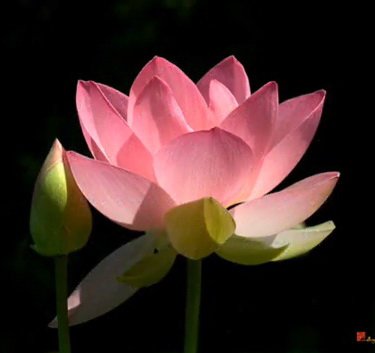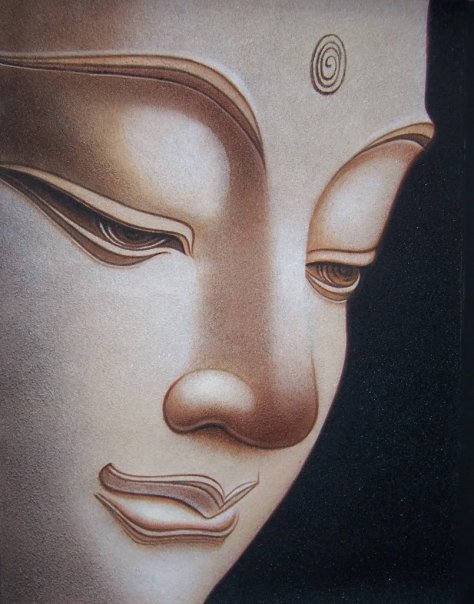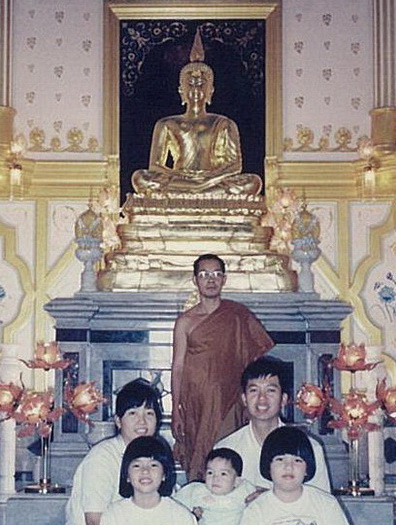Blessing Fourteen:
Not Leaving one’s Work Undone
Not Leaving one’s Work Undone

E. ILLUSTRATIVE TALES
E.1 Metaphor: Those who are patient . . .
Those who work without interest whether it is hot or cold, persevering like the toughest of grass, dedicating their manly strength to their business, will not fall away from happiness.
E.2 Metaphor: Just as dung accumulates on a pig’s tail
The nature of dung on the tail of a pig is to accumulate with the passing of the days making it increasingly difficult for the pig to find happiness in its daily life. The work a person leaves unfinished is of the nature to impede their prosperity. A person’s value is proportional to the work they complete. The work they leave undone detracts from their value.
E.3 Ex. Cuḷakaseṭṭhī Jātaka (J.4)
There was once a millionaire and his servant who were travelling in a cart in the middle of India. The millionaire saw a dead mouse at the side of the road and pointed it out to his servant saying ‘if someone had proper principles of working as a salesman even with such a dead mouse as this he could set himself up in life.’ The servant immediately got down from the cart and allowed the millionaire to go home alone. He picked up the mouse and because he knew a lot of people in the area, he selected a house where he knew someone with compassion who kept cats was living and took the mouse there. He knew that compassionate people won’t kill mice but at the same time the cat has to have something to eat every day. He sold the mouse to the householder for a few cents. He used the few cents to buy some sugar-cane juice from the people crushing the cane. He asked for another bucket of plain water. He took the water and the sugar cane juice to the gate of the town. He waited until the flower-gatherers from the palace came back from where they had been picking flowers outside the city wall. Of course they were tired and thirsty as they came to the gates. He gave them a glass of plain water to drink first of all. After they had slaked their thirst, he gave them a second glass of sugar-cane juice. The palace attendants didn’t know how to pay the man so they gave him each a handful of jasmine flowers. The man took the flowers and sold them for a small profit. He had a little more money than before. He bought more sugarcane juice and collected a little more rain water, he sold all of it to the flower gatherers on the second day, and got enough money for a second round of sugar-cane juice — enough for the people collecting firewood. The people with the firewood drank the sugar-cane juice and each left him with a bundle of firewood. He sold the firewood and got even more sugar-cane juice. He kept his eyes and ears open and noticed that there had been a storm in the night. In the royal forest there were many broken branches and tree-trunks on the ground. He took his sugar-cane juice along to the forest. He offered to the forest keeper to be the one to clear up all the broken branches and the forester agreed because he would be able to have an easy day. He therefore offered sugar-cane juice to the children running and playing nearby and the children cut and gathered all the broken branches together into a huge pile. He sold the branches as firewood to a potter and bought a big barrel. Where he had sold sugar-cane juice by the bucket before, now he sold it by the barrel. He bartered sugar-cane juice for flowers, firewood and even grass-fodder. One day a big caravan of traders arrived at the gate with many hungry horses etc. He told the stable boys in the palace not to sell their fodder to anyone and he sold his own fodder at a high price to the traders. It was not enough and they even took the fodder from the palace to sell to them at the same high price so that everyone got a profit. He carried on working like this until before long he was able to put down a deposit on a trading ship. His ship kept trading until he had amassed a fortune of 100,000. In the end he returned to the old millionaire who had been his master and presented him with the 100,000 saying that all of this wealth had come from the policy of seeing benefit in a dead mouse. The millionaire was so impressed that he gave the man a fortune of a million and also his daughter’s hand in marriage.
E.4 Ex. Nakkhatta Jātaka (J.49)
There was once a bridegroom who was due to be married the next day. He was about to go to the wedding reception when a fortune-teller came and warned him that today was not an auspicious day for a marriage. The man believed the fortune teller and decided not to turn up for his own wedding. The bride waited and waited and then in impatience married someone else. The bride took all the first bridegroom’s property in compensation for his having broken the marriage contract and married someone else.










